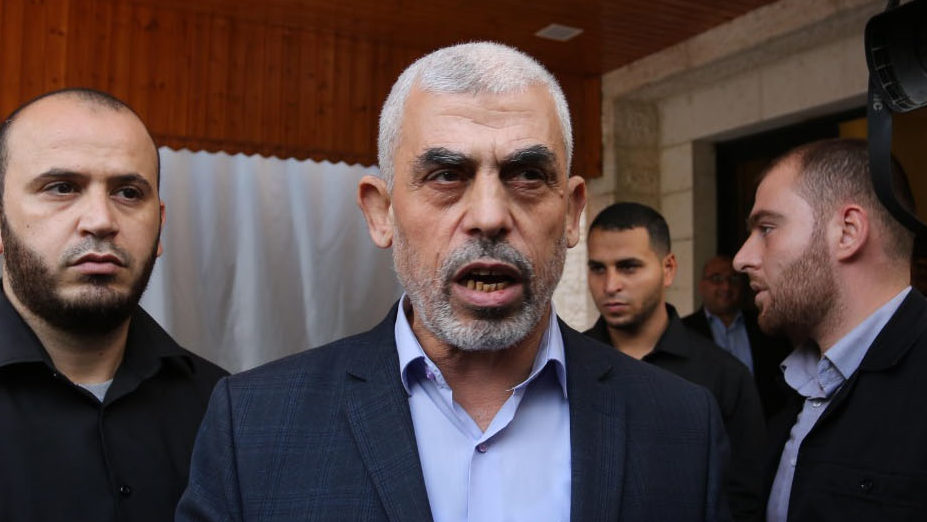When Will the Inevitable Clash Between Israel and Iran Unfold
Al Rai, Kuwait, October 8
Israel has managed to turn a portion of Lebanon into another Gaza. Previously, we were concerned with Gaza; now, our attention extends to both Gaza and Lebanon. This is the reality we must confront one year after the onset of the Gaza conflict, when Hamas, under the leadership of Yahya Sinwar, initiated the Al-Aqsa Flood attack that significantly shook the Israeli state, propelling it into an existential crisis. The future of the region is now undeniably being reshaped by new developments stemming from the Gaza events of October 7, 2023. Unwittingly, Sinwar has taken on the role of shaping the region’s future. As he ascended to head Hamas’ political bureau following the assassination of Ismail Haniyeh in Tehran, Sinwar continues to navigate Gaza’s tunnels with Israeli hostages in tow, despite the fact that the densely populated Strip of 365 square kilometers has become a place that even its residents find inhospitable. Who holds accountability for this situation? Certainly, it is shared at the Lebanese level, particularly by Hezbollah, which chose to confront Israel by opening a front in southern Lebanon. Lebanon is now experiencing the consequences of the seeds sown by Hezbollah. Hezbollah and Iran, backing its actions, miscalculated Israel severely. Above all, it is evident that Hezbollah underestimated the duration of the Gaza conflict. They believed history would repeat itself, as it did in the summer of 2006, when international forces, led by the United States, acted swiftly to halt the conflict after only 33 days. In response, the UN Security Council passed Resolution 1701. Hezbollah was quick to embrace the resolution, with its Secretary-General Hassan Nasrallah, who was recently assassinated by Israeli forces in the southern suburbs of Beirut, seizing the moment to declare a “divine victory.” This so-called victory was, in truth, a triumph over Lebanon itself, allowing the party to consolidate control gradually until it succeeded in installing Michel Aoun as president of the republic on October 31, 2016, subsequently gaining control over decisions of war and peace. Israeli Prime Minister Benjamin Netanyahu could not eliminate Hamas. Instead, he chose to devastate Gaza, with no assurance that it would recuperate anytime soon. International organizations suggest that Gaza may need twenty years to rebuild. How could a Lebanese party overlook Israel’s reaction to the Al-Aqsa Flood and impulsively declare war on Israel the very next day under the guise of “supporting Gaza”? In light of the widespread devastation in southern Lebanese villages and the displacement of 1.5 million Lebanese citizens, the pressing question remains: is there a possibility of halting the war that Israel is waging on Lebanon, seizing the opportunity to eradicate Hezbollah? The straightforward answer is that halting the war is unfeasible. Israel remains committed to the conflict, particularly after Hezbollah compelled over seventy thousand Israelis to evacuate their homes in the Galilee. While Sinwar remains alive, Hassan Nasrallah has sadly become another casualty, buried beneath the rubble of buildings that once sheltered him. Sinwar’s actions have irrevocably altered both Gaza and Lebanon simultaneously. It is necessary to acknowledge the impacts forged by a man who knew little beyond his years in an Israeli prison. Indeed, the responsibility for the Gaza war’s expansion into Lebanon does not rest solely with Sinwar. The foremost accountability lingers with Hezbollah and its directors in Tehran. It must be conceded that Israel managed to deliver a significant blow to Hezbollah, which may struggle to recover. The issue extends beyond the assassinations of Hassan Nasrallah and his successor, Hashem Safieddine, to a broader wave of targeted killings of influential Hezbollah leaders tied closely to the Iranian Revolutionary Guard. Furthermore, it should not be overlooked that Israel has invested considerable efforts over more than 15 years to deliver this blow to Hezbollah and its strongholds in the southern suburbs, the south, the Beqaa, and other areas across Lebanon. Sinwar, whose understanding of the world is limited, should have been better acquainted with Israel, having spent extensive years in its prisons. He ought to have foreseen the repercussions following the killing of around 1,200 Israelis in Gaza settlements and the capture of others. The same can be said for the late Hassan Nasrallah, who failed to recognize the gravity of linking Lebanon’s fate to the Gaza conflict—a transgression against the nation and its citizens. A profound connection between Lebanon and Gaza is their shared affiliation with Iran. The Islamic Republic aimed to exploit the Gaza conflict to its fullest, waging proxy wars and maneuvering toward a deal with the American administration to cement Iran’s central role in the region and alleviate sanctions. Despite recent developments, such as the release of six billion dollars belonging to Iran from Qatari banks—a gesture of goodwill from the US toward the new Iranian President Masoud Pezeshkian—the burning regional question remains: when will the inevitable clash between Israel and Iran unfold? This confrontation is unavoidable, as Israel’s reliance on Hamas and Hezbollah has dwindled. The core concern for the Israelis is the looming threat of an Iranian nuclear weapon, a preoccupation that has intensified following October 7 and Hezbollah’s opening of the southern Lebanon front. In conclusion, Sinwar is poised to dictate the trajectory of the region, influencing the futures of Gaza and Lebanon. Regrettably, the looming Israeli-Iranian confrontation will be a significant event to watch in the near future, with outcomes that remain uncertain. —Kheirallah Kheirallah (translated by Asaf Zilberfarb)
This holiday season, give to:
Truth and understanding
The Media Line's intrepid correspondents are in Israel, Gaza, Lebanon, Syria and Pakistan providing first-person reporting.
They all said they cover it.
We see it.
We report with just one agenda: the truth.



